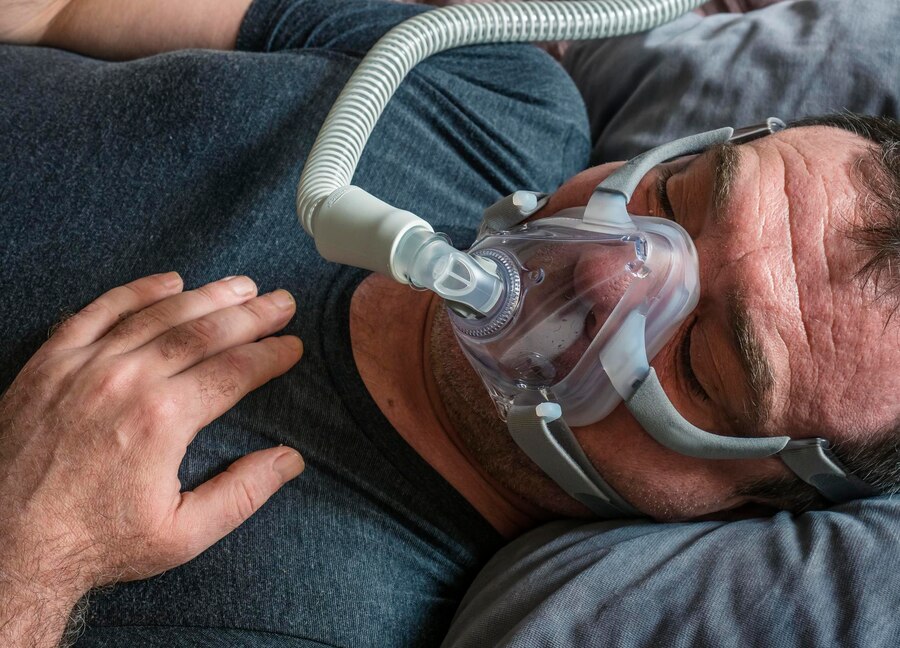Sleep Apnea is a very common yet serious condition.It affects a lot of people worldwide. It leads to daytime fatigue, high blood pressure and even heart problems!
While CPAP (Continuous Positive Airway Pressure) machines are commonly used for managing Sleep Apnea, there are a lot of people who prefer natural ways to alleviate their symptoms.
Fortunately, there are a lot of effective strategies which you can incorporate into your lifestyle to manage and reduce the severity of Sleep Apnea naturally, without relying on machines or medications.
Understanding Sleep Apnea: Why It Matters
Sleep Apnea is a sleep disorder that is characterized by intermittent interruptions in breathing pattern during sleep. These pauses in breathing lasts anywhere from a few seconds to a minute. It occurs multiple times throughout the day. As a result, the quality of sleep gets severely affected and this leads to daytime sleepiness.
Types of Sleep Apnea
Primarily there are two most common types of Sleep Apnea:
1. Obstructive Sleep Apnea (OSA)
OSA occurs when the muscles at the back of the throat relax excessively while sleeping. This leads to a blockage of the airways. This is the most common form of Sleep Apnea and is often linked to obesity, poor sleep posture and nasal congestion.
2. Central Sleep Apnea (CSA)
Central Sleep Apnea is less common and occurs when the brain fails to send proper signals to muscles which control breathing. Unlike OSA, CSA is not caused by physical airway obstruction. It is rather caused by a dysfunction in the brain’s respiratory control center.
Both types of sleep apnea lead to serious health risks. Hence, it is essential to address them early on.
Achieve and Maintain a Healthy Weight
One significant factor that contributes to Obstructive Apnea is being overweight. If an individual has extra weight around the neck then that can obstruct the airway and make it difficult to breathe during sleep.
Achieving and maintaining a healthy weight significantly reduces severity of sleep apnea symptoms and eliminates them altogether.
Tips for Healthy Weight Loss
Here are a few tips which you can follow to get a more healthy weight loss:
1. Have a Well-Balanced Diet
You need to have more whole foods like vegetables, fruits, whole grains and lean proteins, while reducing processed food and sugars.
2. Exercise Daily
Aim to get at least 30 minutes of moderate activity most days of the week. You can indulge in activities like walking, swimming and cycling. This will help burn calories and improve your overall health.
3. Stay Hydrated
Drink plenty of water to support metabolism. This would also help control your appetite.
4. Get Proper Sleep
Getting poor sleep can affect hormones which regulate hunger. This can lead to overeating. Prioritize getting at least 7-8 hours of quality sleep every night.
Sleep in a Position That Supports Your Airway
The way you sleep has a significant impact on the severity of your sleep apnea. Sleeping on your back can cause your soft tissues and tongue to collapse backward, thus blocking the airway.
On the other hand, side sleeping helps keep the airway open.
Ways to Support Side-Sleeping
Here are a few ways to support side sleeping:
Use a Body Pillow
A large body pillow can help keep you from rolling back during the night.
Adjust Your Mattress
Consider getting a mattress with proper support. This will encourage your side sleeping posture.
Strengthen Airway Muscles with Breathing Exercises
One effective way of reducing sleep apnea symptoms is strengthening muscles which support the airway. There are a few breathing exercises which can help tone muscles. This makes them less likely to collapse while sleeping.
Examples of Airway Exercises
1. Buteyko Breathing Exercises: This involves shallow breathing exercises which help reduce the nature of airways to constrict.
2. Tongue and Throat Exercises: Exercises like singing, blowing air through lips or using devices like Sleep Apnea mouthpiece can strengthen muscles of tongue and throat. This helps prevent airway collapse.
Manage Allergies and Nasal Congestion
Nasal allergies and allergies can worsen sleep apnea by blocking the airway and causing difficulty in breathing. By keeping nasal passages clear, you can get a better airflow for sleep.
Simple Tips To Reduce Nasal Congestion
Utilize a Humidifier
Dry air can irritate nasal passages. Hence, it is recommended that you use a humidifier to help keep your airways moist and clear.
Try Saline Nasal Sprays
This clears up mucus and reduces inflammation in nasal passages.
Use an Allergy-Friendly Pillowcase
This reduces exposure to allergens like dust mites, which upon turn exacerbates nasal congestion.
Consider Nasal Strips
Such strips help open up nostrils. This makes it easier for them to breathe through the nose.
Limit Alcohol and Sedatives
- Alcohol and sedatives relax throat muscles.
- This exacerbates the symptoms of Sleep Apnea by increasing the likelihood of airway obstruction.
Furthermore, by eliminating and reducing consumption of alcohol and sedative medications, you can significantly improve symptoms.
Establish a Calming Bedtime Routine
Practice Deep Breathing
You can get going on progressive muscle relaxation to reduce stress before bed.
Avoid Screens
This needs to be followed for at least 30 minutes before sleeping. As the blue light emerging from devices disrupts the production of melatonin (sleep hormone).
Create a Peaceful Sleep Environment
You can try dimming the lights and keeping the bedroom cool and quiet.
Try Natural Remedies for Better Respiratory Health
There are a few natural remedies which have been used since centuries to support respiratory health and improve the quality of sleep. While they might not cure sleep apnea outright, they can alleviate some of the symptoms.
Natural Remedies for Sleep Apnea Relief
1. Gargle with Salt Water
Gargling with warm salt water before bed can reduce inflammation in the throat. They can also clear any mucus buildup.
2. Essential Oils
Oils like peppermint, eucalyptus and lavender help open up airways and promote relaxation. You can use a diffuser or even apply diluted oil to your chest.
3. Herbal Teas
Drinking peppermint tea, valerian root and chamomile before bed can have calming effects and improve the quality of sleep.
Regularly Monitor Sleep Apnea Symptoms and Improvement
- Tracking your symptoms is important for understanding your condition.
- It can help you evaluate the effectiveness of natural treatments.
- You can keep a sleep diary with you to identify patterns and triggers which affect sleep quality.
What Can You Include In Your Sleep Diary?
- Bedtime and Wake Time
- Changes in lifestyle, diet, etc
- Symptoms like choking, snoring, gasping
- Number of times you wake up during night
Consider Weight-Loss Surgery for Severe Cases

In the most extreme cases where lifestyle changes alone are not sufficient, weight loss surgery can be a viable option for individuals with severe obstructive sleep apnea. This approach should only get considered under the guidance of a healthcare provider.
Here are a few things which you need to do when going for these surgeries:
- Consult with a healthcare provider to discuss pros and cons of surgery
- Surgery should be considered after trying non-invasive methods first
Discuss Your Options with a Sleep Specialist – Dr. Rahul K. Jaiswal
A sleep specialist like Dr. Rahul K. Jaiswal can offer you personalized guidance based on your specific sleep apnea type and severity. They can help you explore the natural treatments, lifestyle changes and other alternatives to CPAP therapy.
FAQs About Managing Sleep Apnea Naturally
Can I completely cure sleep apnea naturally?
Are there any risks associated with natural treatments for sleep apnea?
How long does it take to see improvements with natural treatments?
In Conclusion,
While CPAP machines remain as a gold standard for treating sleep apnea, there are a lot of natural strategies which you can adopt to improve your sleep and reduce the severity of symptoms. By achieving a healthy weight, practicing good sleep hygiene and incorporating lifestyle changes, you can take control of sleep apnea to improve your quality of life.
Visit Dr. Rahul Clinic to ensure you are following a proper treatment plan that is right for you.


